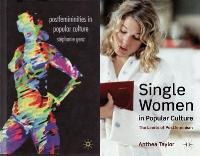The ›F-Words‹: Postfeminism and the (Re-)Negotiation of Femaleness, Femininity, and Feminism in Popular Culture
DOI:
https://doi.org/10.22029/ko.2012.728Abstract
Stéphanie Genz' and Anthea Taylor's works can both be regarded as valuable contributions to the ongoing discussion about the nature of postfeminism. Where Genz' work consists of a comprehensive and broad analysis of the different ways (post)femininities are presented in contemporary (foremost U.S.) popular culture, Taylor concentrates on how the figure of the single woman can be located within postfeminist media discourses.
Both books are based on the argument that contemporary representations of (post-)femininities are determined by an ambivalent relationship of femininity and feminism, simultaneously re-appropriating feminism in the form of an emphasis on power, independence, and personal freedom as well as repudiating feminism as outdated, victimizing, and 'killjoy' (see Ahmed 2010). Covering a wide range of pop culture examples, from Sex and the City, Bridget Jones, and Fatal Attraction to literary texts, self-help books, blogs, and reality TV shows, both authors conduct their analysis via a close reading of selected cultural texts. While Genz tries to untangle how postfeminism shapes the (re)negotiation of the 'f-words': femaleness (as embodied subject position), femininity (as performance of socially constructed gender), and feminism, Taylor elaborates how postfeminism functions to regulate the re-configuration of the 'spinster to the Singleton'.

Downloads
Published
Issue
Section
License
All articles (not book covers) in KULT_online from issue 50 on are published under the license Creative Commons Attribution 4.0. All published articles may be reused under the conditions of the license, particularly for commercial purposes and through editing the article (Human-Readable Summary). All authors (have) permitted the publication under the above mentioned license. There is no copyright transfer towards KULT_online. For all book covers specific rights might be reserved, please contact the respective publisher for any lawful reuse. All contributions published in issue 1-49 of KULT_online are free available online and protected by the German Copyright Law.



